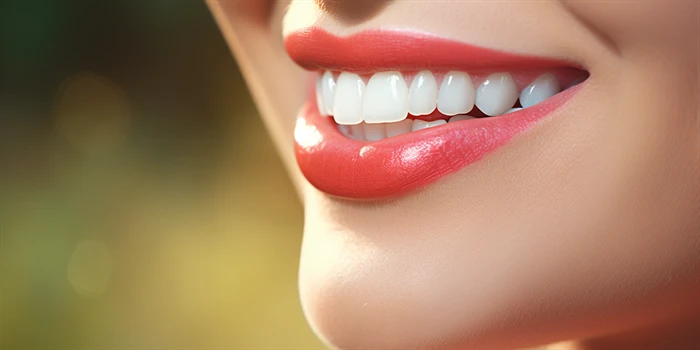When it comes to dental hygiene, having a bright and white smile is often desired. Many people turn to gum that promises to whiten teeth as a convenient and effortless solution. However, there is ongoing debate about whether this type of gum is bad for your overall oral health. In this article, we will delve into 10 aspects to provide a comprehensive analysis on the potential risks and benefits of gum that whitens teeth.

1. Chemical Ingredients
Gum that whitens teeth typically contains chemical ingredients such as hydrogen peroxide or carbamide peroxide. These chemicals are known to be effective in breaking down stains on the teeth's surface. However, excessive use of these chemicals might have adverse effects on your teeth and gums. It is important to follow the recommended dosage and consult with a dental professional before using whitening gum regularly.
Additionally, some individuals may be more sensitive to these chemicals, leading to irritation or even allergic reactions. Therefore, it is crucial to read the product label and consult your dentist if you have any concerns or pre-existing dental conditions.
Price Range: The average price for gum that whitens teeth ranges from $5 to $15 per pack.
2. Tooth Sensitivity
One common side effect of gum that whitens teeth is increased tooth sensitivity. The chemicals used in these gums can temporarily weaken the enamel, making the teeth more susceptible to temperature changes or certain foods and drinks. If you already have sensitive teeth, it is advisable to avoid or limit the use of whitening gum.
To mitigate tooth sensitivity, using desensitizing toothpaste, reducing the frequency of whitening gum use, or seeking professional advice from a dentist can be helpful.
3. Gum Health
Gum health is crucial for maintaining good oral hygiene. Excessive use of gum that whitens teeth may lead to gum irritation or damage. Some individuals may experience gum inflammation or even gum recession due to the chemical ingredients in whitening gum.
To prevent gum issues, it is essential to maintain proper oral care, including regular brushing, flossing, and consulting with a dental professional. They can assess your gum health and provide guidance on the proper use of whitening gum.
4. Enamel Damage
While gum that whitens teeth can remove surface stains, it is important to note that excessive or improper use may damage the enamel. Enamel is the protective outer layer of the teeth, and once it is worn down, it cannot be regenerated. This can lead to increased tooth sensitivity and a higher risk of tooth decay.
To minimize the risk of enamel damage, it is crucial to follow the instructions provided by the gum manufacturer and seek advice from a dentist if you have any concerns.
5. Long-term Effects
Long-term effects of using gum that whitens teeth are still not widely studied. It is uncertain how prolonged exposure to the chemical ingredients may impact oral health in the long run. Therefore, it is recommended to use whitening gum as an occasional solution rather than relying on it as a daily dental care routine.
6. Stain Removal Efficacy
Gum that whitens teeth can provide noticeable stain removal on the surface of the teeth. However, it may not be as effective for deep or intrinsic stains. In case of stubborn stains or discoloration, professional dental treatments like professional whitening or veneers may be required.
7. Oral Care Routine
Using gum that whitens teeth should not replace a proper oral care routine. Regular brushing, flossing, and visits to the dentist remain vital for maintaining good oral health. Whitening gum should be considered as a supplement to these practices, rather than a substitute.
8. Alternatives
If you are concerned about the potential risks associated with gum that whitens teeth, there are alternative options available. Toothpaste, mouthwashes, and whitening strips are popular alternatives that can also help achieve a whiter smile.
The average price range for whitening toothpaste is $5 to $10, while whitening strips range from $20 to $50 per box.
9. Professional Guidance
It is essential to consult with a dental professional before incorporating gum that whitens teeth into your oral care routine. They can evaluate your specific dental condition and provide personalized advice on the most suitable whitening options for you.
10. Overall Verdict
While gum that whitens teeth can be a convenient option for brightening your smile, it is important to use it responsibly and in moderation. Taking proper care of your oral health, consulting with a dentist, and following the instructions on the gum packaging are key to minimizing any potential risks.
Frequently Asked Questions
1. Is gum that whitens teeth safe for everyday use?
Whitening gum is generally safe for everyday use as long as you follow the recommended dosage and consult with a dental professional. However, it is advisable to use it occasionally rather than as a daily routine.
2. Can whitening gum replace professional dental treatments?
Gum that whitens teeth can provide temporary surface stain removal but may not be as effective for deep or intrinsic stains. For more significant whitening results, professional dental treatments may be necessary.
3. How long does it take to see results from using whitening gum?
The results of using whitening gum can vary depending on the individual and the severity of the stains. Some people may notice improvements within a few weeks, while others may require more time.



